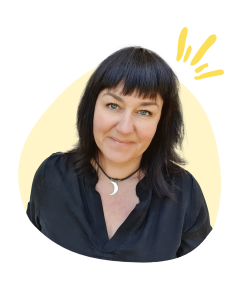Not Autistic Enough? That’s Internalised Ableism Talking
“Maybe I’m just overreacting.”
“I can’t be autistic—I’m not that autistic.”
“If I was really struggling, I would’ve known sooner.”
In the months before my autism diagnosis, these thoughts nagged at me constantly. From speaking to others in the late-diagnosed autistic community, I know I wasn’t alone in experiencing internalised ableism and autism-related doubt.
Internalised ableism is sneaky. It doesn’t show up waving a red flag or shouting over a loudspeaker. It isn’t someone telling you outright that you’re faking, exaggerating, or just “not trying hard enough.”It’s quieter than that—more familiar. It’s the voice you’ve unknowingly absorbed over years of masking, forcing yourself to fit in, and being taught—explicitly or not—what autism is “supposed” to look like. It’s the voice that tells you your struggles aren’t real enough to count.
Because when you’ve spent a lifetime convincing yourself you’re just shy, awkward, or “a bit different,” it can take years—sometimes decades—to realise there might be something more going on.
“But I Don’t Even Like Maths!”
For many of us, the journey to diagnosis or self-identification is marked by hesitation, second-guessing, and a hefty dose of self-doubt. By the time we even entertain the thought that we might be autistic, we’ve often spent years—if not a lifetime—adapting. We’ve learnt to hold eye contact (even if it feels unnatural), mimicked social behaviour, and endured sensory overload because “everyone else manages—so why can’t I?”
At that point, it can feel almost ridiculous to imagine that autism applies to us.
Stimming? Well, I don’t flap or rock. (I do chew my lips, pick at my skin, and constantly bounce my leg under the table—but surely that’s just stress?)
Special interests? I mean, sure, I hyperfixate on specific topics for months or years, but that’s just a hobby, right?
Social difficulties? I can be sociable when I need to be. (Though it leaves me drained, foggy, and replaying every conversation like a broken record.)
The truth is, most of us were never taught what autism actually looks like—especially in people who learnt to mask early and well. Instead, we internalised the stereotypes: the nonverbal child, the maths prodigy, the person who struggles so obviously that their autism is recognised in childhood. If we didn’t fit that mould, we assumed we didn’t qualify. It’s one of the most common ways internalised ableism and autism collide—quietly, persistently, and often without us realising.
And so, the self-doubt quietly took root.
Ableism Dressed as Resilience
A particularly cruel part of internalised ableism and autism is how often they’re misunderstood as signs of strength rather than struggle.
Many late-diagnosed autistic people have spent their lives enduring environments and expectations that were never designed with us in mind—work meetings, noisy commutes, relentless social rituals. We’ve “managed,” because we had no other option.
And because we have endured them, it’s easy to convince ourselves that they weren’t actually that hard to begin with.
I’ve been in the workforce for years without adjustments—why start now?
Social situations have always been hard, but I get through them. Isn’t that just life?
Other autistic people seem to struggle more—I should be grateful.
But surviving isn’t the same as thriving. Coping isn’t the same as comfort. And pushing yourself to the brink doesn’t make you any less autistic—it just makes you very good at pretending.
How We Became Experts in Self-Gaslighting
“I’ve managed this long without help”
It feels logical, doesn’t it? If we’ve got this far, how bad can it really be?
But here’s the thing: surviving doesn’t invalidate your need for support. It highlights it. Hanging on by your fingernails, getting through another day without crying—these are not signs that you’re absolutely fine. They’re signs that you’re struggling and need help.
What It Really Costs to Get Through The Day
Yes, you’ve made it through job interviews, family events, and sensory minefields without accommodations. But what did it cost you? That tight jaw, the chronic exhaustion, that looming sense you’re about to collapse under the weight of it all—and the fear of what will happen if you do.
That’s not thriving. That’s adaptation under duress.
And no, not everyone feels like that.
“Other People Have It Worse”
A classic internalised ableism greatest hit: the trap of comparison. The belief that if someone else struggles more visibly, your struggles must not be valid.
I don’t have meltdowns like others, so I must not really be autistic.
I wasn’t diagnosed as a child—it can’t be that serious.
I’ve got a job, a relationship, a mortgage. Maybe I’m just being dramatic.
But autism isn’t some hierarchy where only the most visibly distressed are allowed recognition. It’s not a competition—and there’s no medal for pretending everything’s fine.
Would you tell another autistic person their experience doesn’t count because someone else has it worse? No? Then it’s time to stop saying it to yourself.
“I Don’t Deserve Accommodations”
Even after diagnosis, internalised ableism can linger like a particularly stubborn houseguest. We hesitate to ask for accommodations. Downplaying our needs feels easier than explaining them. And too often, we tell ourselves we’re just making a fuss.
Why ask for headphones now, when I’ve always coped with noise?
I can’t request extra processing time when I’ve worked here for years without it.
I’ve never disclosed my autism at work—it feels too late to start.
Meanwhile, your shoulders are permanently hunched from tension. You’re exhausted, anxious, and slowly burning out—but you’ve learnt to call it “just being tired.”
Let me say it plainly: not everyone feels like this. And you don’t have to either.
Accommodations aren’t a luxury for those who’ve hit breaking point. They exist to make life better—for you, too.
Unlearning Internalised Ableism
Letting go of internalised ableism and autism-related self-doubt isn’t a one-time epiphany—it’s a process. Internalised ableism and autism are deeply interwoven, especially for those who’ve spent years adapting without knowing why. But it is possible. And it starts with small, deliberate acts of self-compassion:
-
Your struggles are valid. You don’t need permission to believe your own experience.
-
Comparison is a distraction. Your autism doesn’t need to look like anyone else’s.
-
You deserve support. Full stop.
-
Community matters. Seek out others who’ve walked this path. There’s real power in shared understanding.
-
Check your self-talk. If you wouldn’t say it to someone else, don’t say it to yourself.
Final Thoughts
Unlearning years of self-doubt isn’t easy. It takes patience, gentleness, and the courage to challenge the narrative you’ve been carrying all this time.
But the more you acknowledge your experience—the more you embrace your autistic identity without apology—the quieter that internalised voice becomes.
And one day, with a bit of luck, it fades altogether.






















